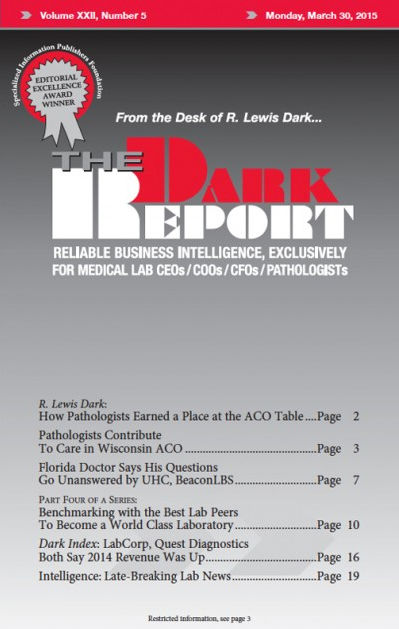CEO SUMMARY: From the launch in 2013 of a big accountable care organization in Wisconsin, the North Shore Pathologists at Columbia-St. Mary’s Hospital have been involved. Among the lessons learned are the importance of structuring the pathology contract with the hospital to anticipate value-based reimbursement and having full access to the ACO’s data. The pathologists are using this data to develop test utilization programs that help physicians order the right lab test for the right patient.
To access this post, you must purchase The Dark Report.


